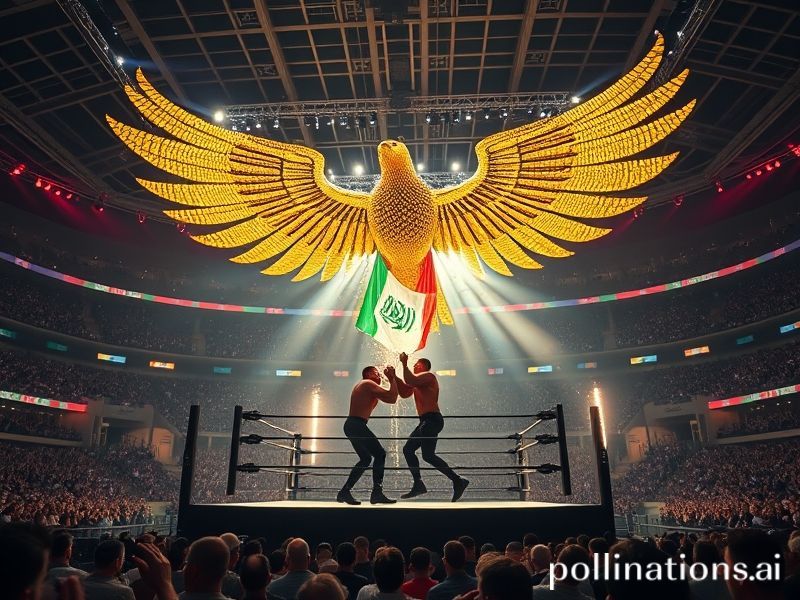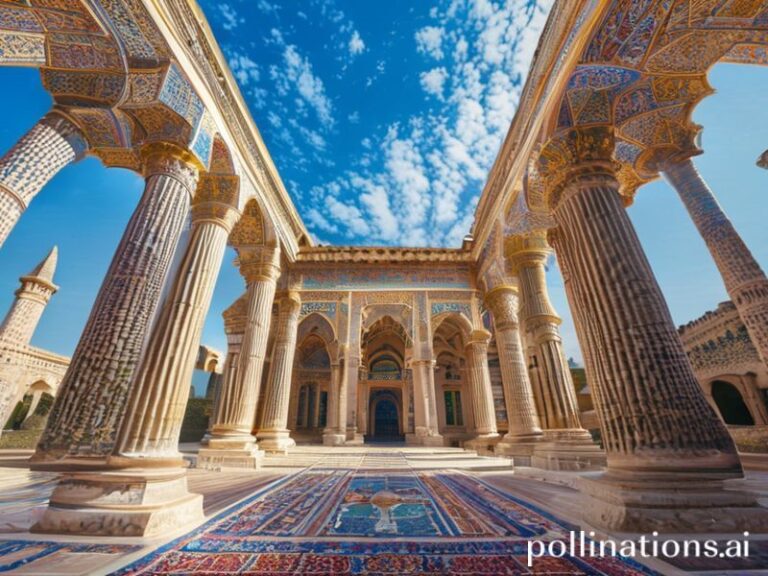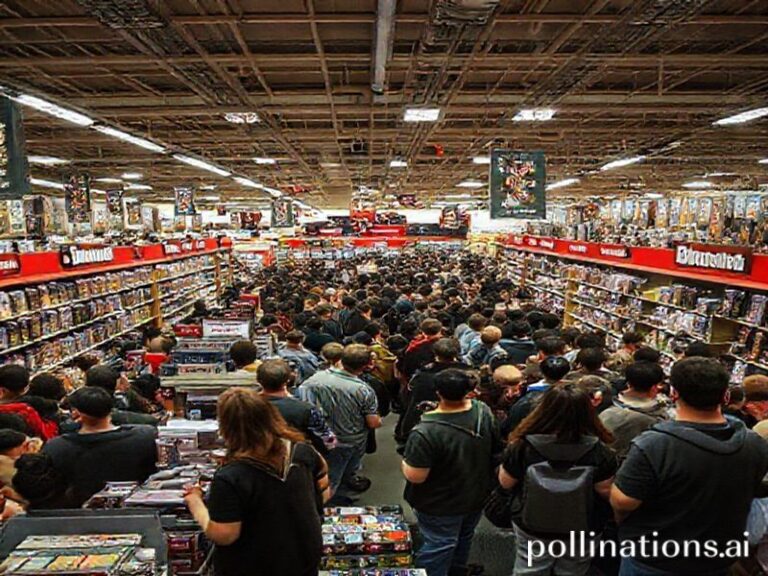WrestleMania 43 in Saudi Arabia: When Global Politics Got Body-Slammed into Prime Time
Riyadh, 7 April 2030 – Somewhere between the fifteenth pyrotechnic blast and the moment a seven-foot Canadian in sequined camo pointed at the newly unveiled 5-Star Neom Intercontinental, it became clear that WrestleMania 43 had achieved what the G20, COP summits, and three UN Secretaries-General could not: unanimous global participation. One hundred ninety-six countries tuned in, not because they all adore suplexes, but because the Saudis finally found the one commodity harder to sanction than oil—nostalgia wrapped in spandex.
The optics were deliciously absurd. Inside the King Khalid International Stadium—renamed “The Thunderdome at NEOM” for one glittering weekend—American wrestlers cut promos about freedom while standing under a giant LED orb that read, in tasteful calligraphy, “Vision 2030.” The same orb later displayed tweets from viewers in Tehran, Tel Aviv, and Pyongyang, all hashtagged #WrestlePeace. Somewhere in Brussels, an EU commissioner took a stiff drink and asked an aide if geopolitics had just been body-slammed by a folding chair.
This year’s card was curated like a Davos panel. Logan Paul (now U.S. Secretary of Influencer Affairs) defended the Metaverse Championship against a hologram of Andre the Giant, licensed from Disney’s resurrection lab. The Bollywood Boyz opened with a victory over the Russian tag-team “Sanctions & Oligarchs,” climaxing when the referee—an actual WTO judge—fast-counted because, as he later shrugged, “everyone loves a unipolar world.” The main event pitted Roman Reigns, still somehow champion, against Saudi home-grown hero Faisal “The Vision” Al-Qahtani. Reigns lost after a mysterious power outage coincided with a swarm of delivery drones dropping limited-edition NFT scepters on the front row. Coincidence, like democracy, remains a flexible concept in the desert.
Global brands lined up like pilgrims. Aramco sponsored the ring posts, Tesla the turnbuckles, and TikTok the blood capsules. Apple debuted the iCage, a carbon-neutral cell made of recycled iPhones—because nothing says “human rights progress” like upcycled planned obsolescence. Ratings shattered records; even the BBC broke format to deploy an on-screen emoji bar so viewers could weep-laugh in real time.
The real action, naturally, happened backstage. Delegations from Argentina and Nigeria signed grain-for-oil swaps over a shared bucket of spittle-covered protein bars. Elon Musk tried to buy the Undertaker’s entrance gong to use as a Mars colony dinner bell. Meanwhile, China’s delegation quietly booked the entire next week to film propaganda spots titled “WrestleHarmony,” starring a panda-suited John Cena who speaks flawless Putonghua. (Cena’s agent later clarified his client had “accidentally studied the wrong dialect for six years,” which is the closest anyone in this business ever comes to an apology.)
Human rights groups issued the obligatory condemnations, but even their press releases sounded fatigued, like a jobber tapped out in minute two. Amnesty’s statement called the event “a glittering distraction from ongoing repression,” then immediately pivoted to a merch link for their new “Arrested Development” hoodie—proceeds to benefit jailed bloggers, shipping not included. Everyone, it seems, has learned to monetize the cognitive dissonance.
As fireworks spelled “ONE WORLD, ONE RING” above the stadium, a sandstorm rolled in, politely waiting until the final copyright logo faded. Perhaps nature itself was offering commentary: every empire—whether Roman, British, or Cable-TV—eventually eats a faceful of desert grit. Yet for one gaudy night, the planet suspended its usual programming: trade wars became trade suplexes, proxy conflicts turned into proxy ladder matches, and the universal language was not love but the perfectly timed groan of a folding chair.
Conclusion: WrestleMania 43 did not solve the world’s problems; it merely bodyslammed them into a more entertaining shape. In doing so, it reminded us that geopolitics is just kayfabe with poorer lighting. The Saudis secured soft power, the West secured ratings, and the rest of us secured front-row seats to the grandest spectacle of managed consent since the last Super Bowl. We came, we saw, we chanted “This is awesome” on cue—because in 2030, irony is the only currency still pegged to reality.







